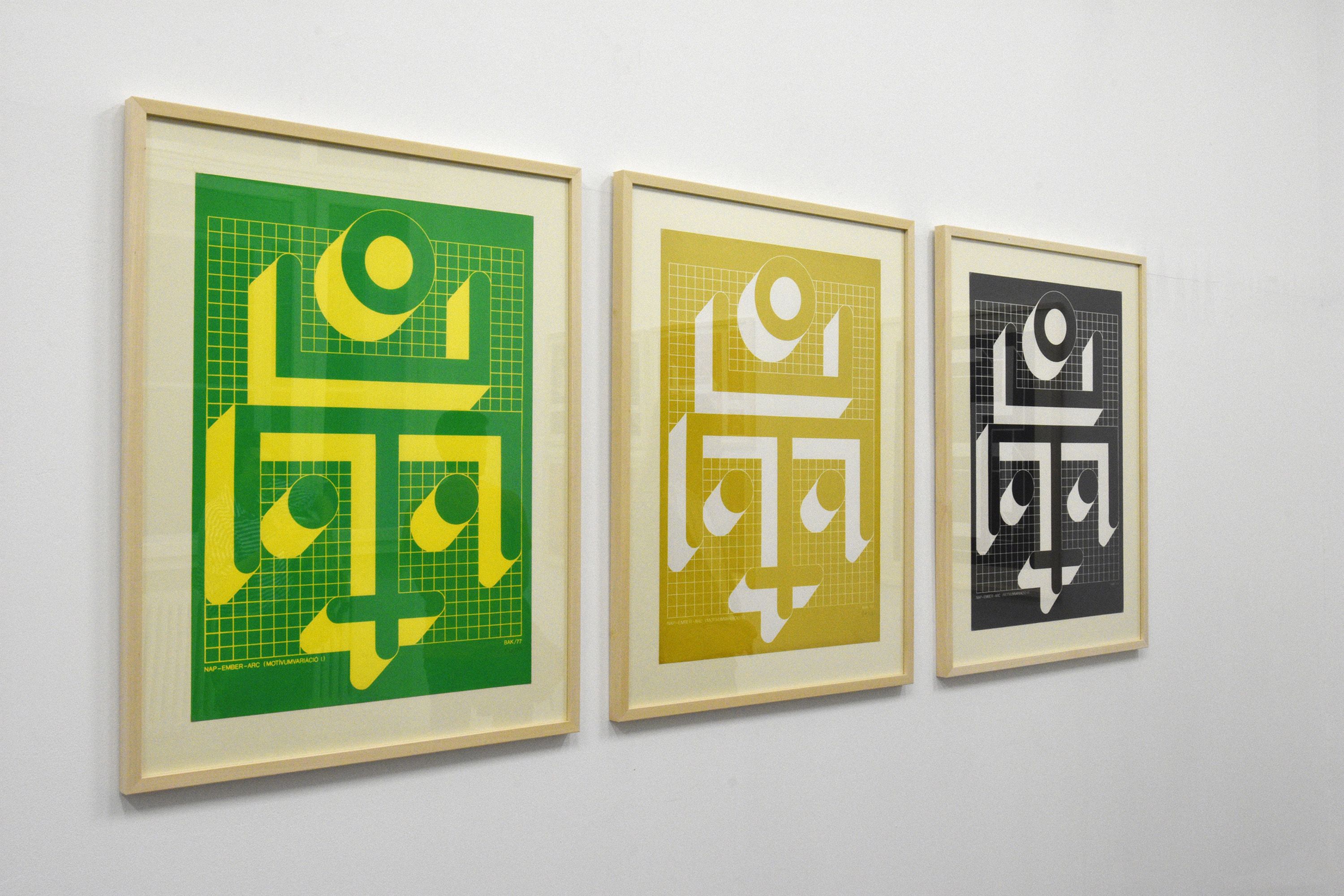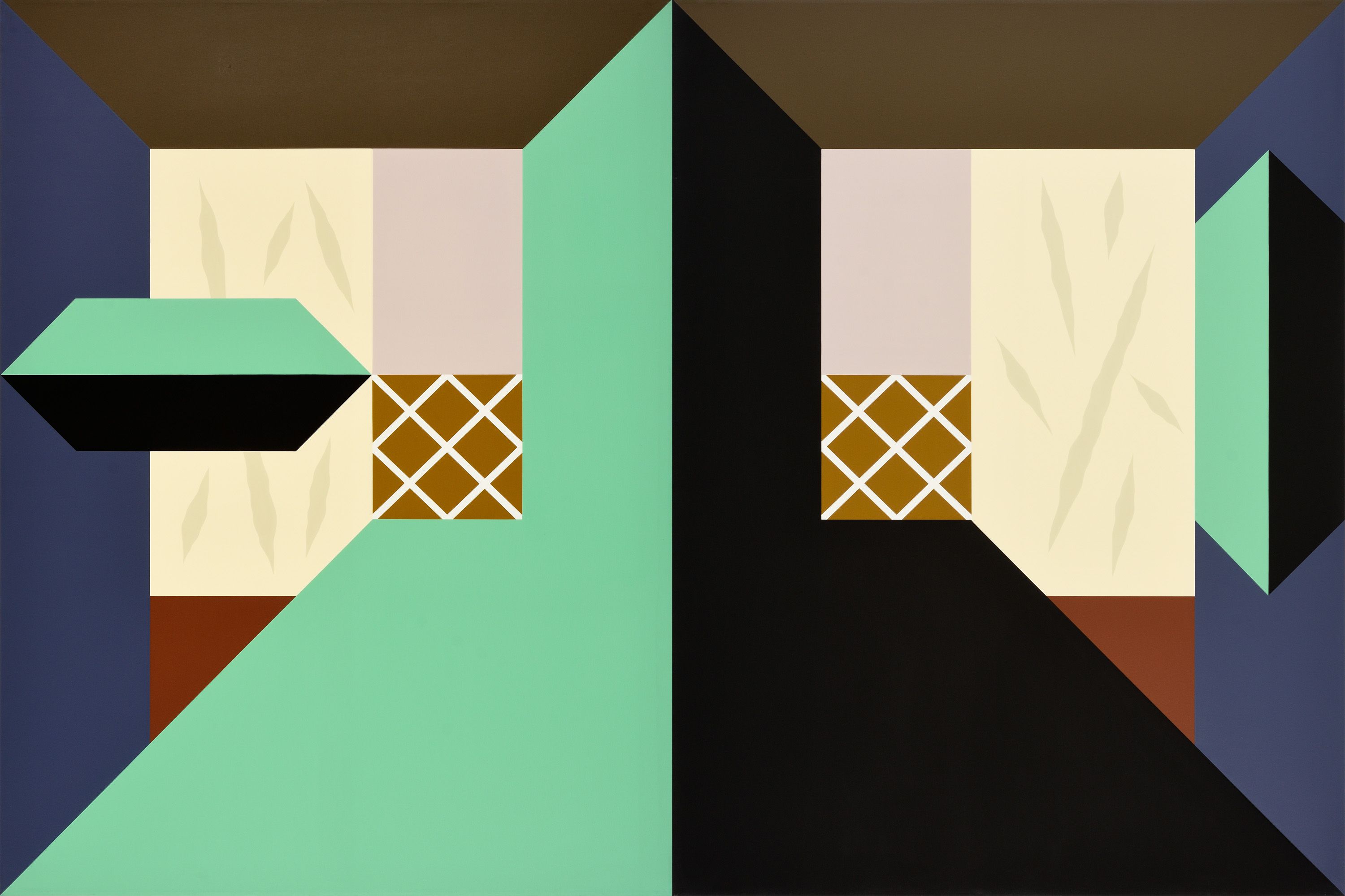Imre Bak
Shifts
| Venue: | acb Attachment |
| Date: | Jun 17 – Aug 25, 2016 |
Description
The exhibition at the acb Attachment features a selection of Imre Bak's prints from the period between 1968 and 1983. In the displayed silkscreen prints, viewers encounter the characteristic shapes and compositions known from Imre Bak's paintings, along with their variations, offering insight into a number of subsequent periods from the artist's body of work.
In 1971, Imre Bak, together with János Fajó and István Nádler, developed a program that, through the activities of a community of artists — and in the spirit of classic avant-garde — sought to popularize art and render it accessible to everyone.
This partnership of artists, which later came to be referred to as Budapesti Műhely [Budapest Workshop], or Pesti Műhely, or simply Műhely, remained active until 1988, with such prominent members as Tamás Hencze, Ilona Keserű and András Mengyán. In 1973, the group established a screen printing studio in a firewood cellar in Benczúr Street, whose activity, aside from creating series by studio members, also included the reproduction and distribution of works by other artists (Max Bill, Lajos Kassák, Nicolas Schöffer and Victor Vasarely, among others). As part of its program, the studio also engaged in research on the aesthetic quality of industrial materials and the critical examination of visual sign systems used in art — the latter of which closely coincided with Imre Bak's semiotic research in folk art, conducted in the second half of the '70s.
In the Benczúr Street studio, the artists produced their prints entirely by handcraft: they worked with hand cut stencils on a homemade printing table and developed the prints on the spot. Imre Bak's early screen prints (which were often one-offs or reproduced in very small numbers) also bear the marks of this process — in terms of painterly quality, they barely differ from his tempera paintings.
By selecting various works (and groups of works) from the rich material of Imre Bak's oeuvre, which spans nearly a decade and a half, the exhibition entitled Shifts aims to provide a comprehensive picture of the artist's use of silk screen printing as a medium during his different periods. Initially, Bak was more interested in experimentation with the technique. From the late '70s onward, however, the focus of his activity shifted more toward varying his motifs, both in terms of colour and composition. These later screen prints were reproduced in slightly larger numbers, fulfilling the original goal of the studio, as a collective.
Imre Bak is a founding member of the Zugló Circle and a defining figure of the Iparterv generation. His first solo exhibition in Budapest was held in the Adolf Fényes Hall in 1970 (with Gyula Konkoly), and, the following year, he was awarded a grant by Museum Folkwang in Essen. His works were presented in 1977 at Műcsarnok/Kunsthalle Budapest, and, in 1986, in the Hungarian Pavilion of the Venice Biennial. They are included in the public collections of such prominent institutions as the Tate Modern in London, the Fonds national d’art contemporain in Paris, and the New National Gallery in Berlin, to mention only a few.

